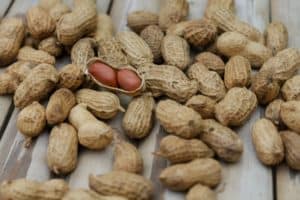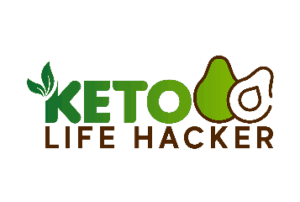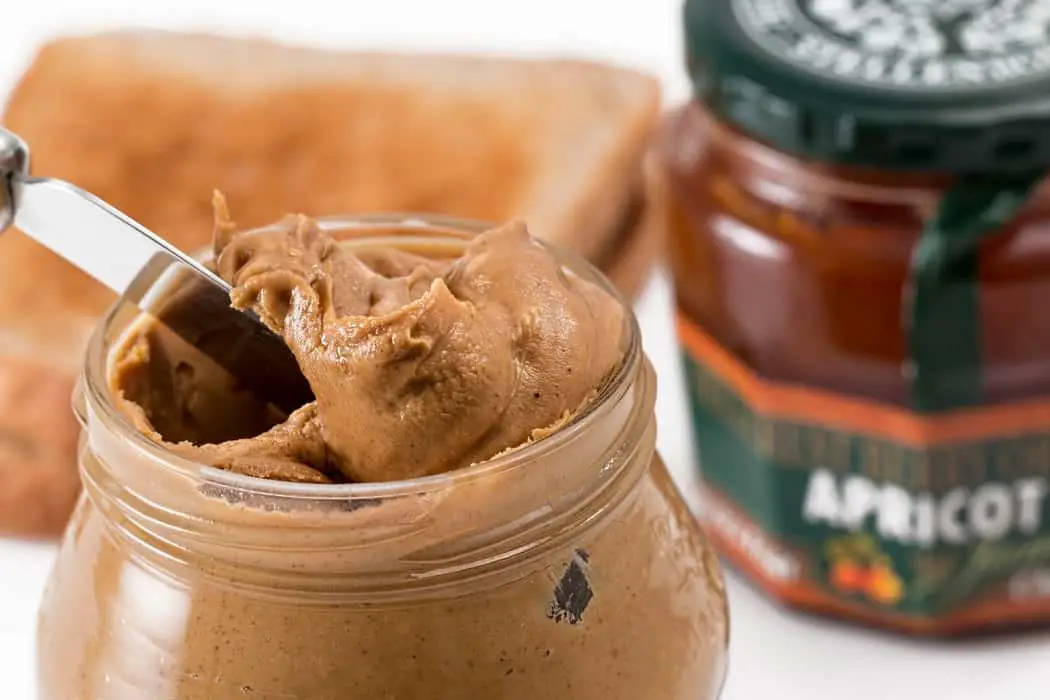Finding healthy sources of protein and fat on the keto diet can be a challenge for many. Furthermore, it’s tough to find good sources of protein and fat that are versatile enough to be used across breakfast, lunch, dinner, snacks and desserts.
That’s what makes peanut butter such a powerful food. It can be lathered onto almost anything, and it’s rich in healthy fats and has a strong structure, making it a perfect additive for baking and blending smoothies.
Peanut butter is also great because of its metabolic properties – it has been proven to stabilize hunger and reduce cravings.
But is peanut butter keto-friendly?
In this article, I’m going to break down the macronutrient profile of peanut butter, and explain some of the best ways that you can still enjoy it while following the keto diet.
What Is Peanut Butter?
On it’s own, peanut butter is generally a pretty unprocessed food.
At its core, peanut butter is essentially just peanuts, which are ground up until they turn into a spreadable paste (or butter).
While many think it’s made from nuts, it’s actually a legume. Legumes are in the same family as peas, lentils and soybeans, and it has some of the same effects as these foods on your body.
While they aren’t technically nuts, peanuts do have comparable nutrient makeups as tree nuts, and have pretty healthy macro counts. In a one ounce serving of peanuts, you’ll tend to get:
- 7 grams of protein
- 14 grams of fat
- 22 grams of net carbs
Some of the most important minerals and vitamins that are found in most types of peanut butter include vitamin E, thiamin, riboflavin, pantothenic acid, magnesium, calcium, iron, folate, potassium and phosphorus.
One thing to keep in mind when assessing peanut butter’s nutritional value is the brand that it comes in. A lot of commercial brands of peanut butter tend to also contain a lot of added ingredients, including vegetable oils, trans fats, and lots of sugar.
Depending on the brand you get, peanut butter can be a perfectly healthy and versatile treat or snack for those practicing the keto diet.
One easy way to always be sure that the peanut butter you’re getting absolutely keto-friendly peanut butter is to buy products that are organic and void of all additional ingredients.
Benefits of Peanut Butter
- Good source of protein
As I mentioned above, peanut butter is packed to the gills with protein – clocking a massive 7 grams of protein per one ounce serving. This is a great way to get toward the recommended daily amount of protein, which for women is 46 grams, and for men is 56 grams, varying by age and activity level.
- Low in carbohydrates
Because peanut butter only contains about 20% carbs (depending on the brand), it makes for a great addition to any low carb diet. And as any keto dieter will know, consuming foods low in carbs is a great nutrition choice to help improve weight loss, and lower risk for metabolic syndrome related conditions such as high blood pressure, high cholesterol, and obesity.
- Reduces cravings
The monosaturated fat and proteins that are found in most types of peanut butter are highly satiating. Having a little bit of peanut butter in moderation is a great way to prevent overeating, and it’s metabolic benefits offer help for converting the other foods in your diet into energy as well.
- High in healthy fats
Peanut butter is full of healthy fats, which is one thing a lot of early keto dieters have trouble getting.
Half of the fat that is found in most types of peanut butter is made up of oleic acid, which is a healthy type of monounsaturated fat, similarly found in products like olive oil. This type of fat has been connected to reduced bad cholesterol levels (LDL) and promoted circulation of good cholesterol (HDL).
- Rich in antioxidants
Peanut butter contains antioxidant an abundance of antioxidants, largely because of the presence of niacin, pantothenic acid, pyridoxine, folate, riboflavin, and thiamin.
One of the most important antioxidants found in peanut butter is resveratrol. Resveratrol is a classified as a polyphenolicantioxidant, which has been linked to assisting with controlling chronic diseases.
Side Effects of Peanut Butter

- Has been linked to weight gain
Not only has consuming peanut butter been directly linked to weight gain (largely because of its metabolic properties and high calorie count), but it’s actually often used on purpose as a weight gain supplement from athletes and those who are underweight.
- Peanuts are highly susceptible to contamination
Peanut butter, especially when not processed and made raw, is particularly susceptible to contaminants called aflatoxins.
Aflatoxins are characterized as toxic agents that are made by molds that grow in soil, grains, and vegetation that is brought to decompose due to improper storage.
By and large, aflatoxins are not a common issue for peanut butter, but can pose a risk depending on how you, or how your peanut butter brand’s manufacturer stores the product.
- Contains saturated fats
While peanut butter is generally a safe and healthy fat, roughly 20% of its fat makeup does come from saturated fats, which are unhealthy and to only be consumed in moderation.
Fortunately for those following the keto diet, the one to two tablespoons a day that this plan allows you also helps to limit the amount of saturated fat consumption.
- Allergic reactions
The peanut allergy is one of the most typical causes of dangerous allergy attacks – and unfortunately peanut butter is one of the most common mediums for this allergen.
While not everyone has a peanut allergy, those that do can experience life-threatening symptoms in the form of anaphylaxis
- Can contain too much sodium
Most types of processed peanut butter are super high in sodium levels, which can contribute to dehydration and inhibit absorption of important minerals.
Fortunately, low sodium variants of popular peanut butter products are becoming more and more available, so I try to stick to those when I go shopping.
Is Peanut Butter Keto-Friendly?
In short, yes – peanut butter can play a great role in the ketogenic diet, as it’s a healthy source of fat, protein, and can actually boost your metabolism to promote a healthy body weight when combined with the right foods.
One caveat is that peanut butter is very easy to consume in large quantities, and it often isn’t measured when baking or spreading it onto other foods. Generally, a serving size of about two or three tablespoons is a proper amount to stay within the keto-friendly range.
Anything more than two or three table spoons runs the risk of driving your calorie and carbohydrate counts way up, which could result in losing your state of ketosis.
Additionally, if you’re more of an athlete, you may be able to ration up to 4 tablespoons per day, as the protein that comes from peanut butter is great for promoting muscle growth and providing those extra bursts of energy – that’s why so many protein shakes and pre/post workout recipes call for adding peanut butter to help build muscle mass.
Like all foods on the keto diet, keeping track of your carb count is one of the best ways to take care of this and avoid getting kicked out of ketosis. On an ideal keto diet, you shouldn’t eat more than 30 to 50 grams of carbs per day, though most experts find that the average person needs to stay under 20 to 25 grams of carbs per day to avoid any risk of losing their state of ketosis.
Because of its metabolic properties and high fat content, peanut butter is a great tool if you need some extra food at the end of the day to help you hit your macro goals.
When Should You Avoid Peanut Butter on Keto?
As we’ve seen, generally peanut butter is perfectly keto-friendly, and isn’t a huge threat to ketosis as long as it is consumed in moderation.
However, one of the biggest problems with most types of peanut butter that you will find in stores today is that they are processed by using hydrogenated oils, otherwise known as artificial trans fats.
These hydrogenated oils put your health, and your ketosis, at serious risk. Some of these negative effects of hydrogenated oils include:
- Reduced HDL cholesterol
- Increased LDL choleseterol
- Increased inflammatory effects
- Increased risk of cancer
- Increased risk of heart disease
- Increased risk of digestional issues
When following the keto diet, one of the most important things you’ll need to do early on is to be able to tell the difference between healthy fats and bad, or artificial trans and polyunsaturated fats, in order to maintain ketosis properly.
Another big factor with processed peanut butters is the high sugar content that comes with them. You’ll absolutely want to read labels and avoid peanut butter brands with lots of sugar, because that will easily kick you right out of ketosis.
Keto-Friendly Peanut Butter Recipes
-
Keto peanut butter cookies
This is one of my favorite hacks to fight off those sweet cravings, and it’s super simple.
Ingredients:
-
- 1/2 cup peanut butter
- 1/2 cup powdered erythritol
- 1 egg
Directions:
-
- Preheat the oven to 350F. Line your baking sheet with parchment paper.
-
- Mix to combine all the above ingredients in a bowl with a spatula
-
- Using a 1.5 tbsp cookie scoop, scoop out the dough and then form balls with hands. Place the balls of dough the baking sheet. Press down with a fork until a criss cross pattern is created
-
- Bake for 12-15 minutes, until the tops are set and golden.
-
- Let the cookies cool for 10 minutes.
-
Peanut butter fat bombs
There are a ton of different ways to make fat bombs out of peanut butter, and they’re one of my favorite ways to get my fat macro count up.
The recipe I’ll share for this article is No Bake Chocolate Peanut Butter Balls.
Ingredients:
-
- 2 cups of smooth (or crunchy) peanut butter
- 2 cups of sugar-free chocolate chips
- 1/2 cup of a sticky sweetener (I prefer monk fruit syrup)
- 3/4 cup of coconut flour
Directions:
-
-
-
-
Line a large plate or baking tray with parchment paper and set aside for later.
-
Combine all of the above ingredients in a mixing bowl, except for chocolate chips, and mix them all together until they are fully combined. If the batter is too thick and crumbly, add some liquid (water or any type of milk) slowly until a thick, formable batter is left.
-
Using your hands, form small balls and place on them on lined plate or tray. Freeze them for 10 minutes.
-
While the peanut butter balls are getting firm in the freezer, melt your sugar-free chocolate chips in the microwave. Remove the peanut butter protein balls from the freezer, and using two forks, slowly dip each ball into the bowl of melted chocolate until the balls are completely covered. Repeat until all the balls are covered in chocolate.
-
-
Refrigerate for 20 minutes, or until the chocolate coating has firmed up.
-
-
- Keto peanut butter milkshake
Peanut butter milkshakes are one of my favorite post-workout treats. You can pack them full of protein, and they’ll keep you full for hours. They take no time at all to make too. I just put the ingredients into my Nutribullet blender, which I got on sale over at Amazon.com, and then they’re ready to go.
Ingredients:
-
- 1 cup Crushed Ice
- 2 tbsp. Cocoa Powder
- Liquid Stevia to taste (7-8 drops)
- 1/2 cup Water or Unsweetened Almond Milk
- 2 tbsp. All Natural Peanut Butter
- 1/4-1/2 cup Heavy Cream or Coconut Milk
- Pinch of Mineral Salt
Final Thoughts
At the end of the day, peanut butter can be a great, keto-friendly way to add some flavor and texture to your meals.
Like most foods, you’ll want to be extra careful about reading the labels for particular brands, and should always go for peanut butters that aren’t processed and are more organic whenever possible.
If you stick to two to three tablespoons of peanut butter in a given day, I’m confident you’ll be able to enjoy all of its benefits without losing your state of ketosis.
Do you have any favorite keto-friendly uses for peanut butter? Drop them in the comments below!
Read More: Is Almond Butter Keto-Friendly?


